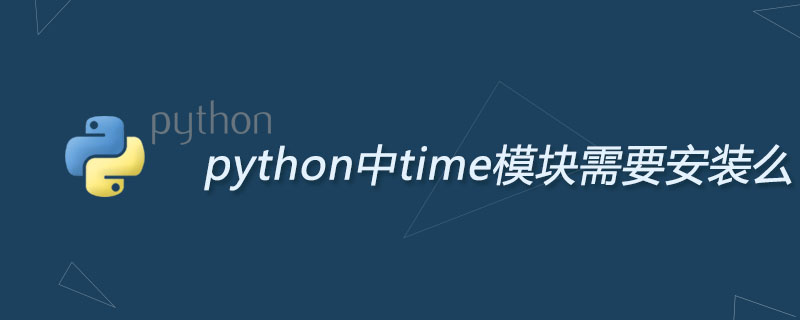Home >Backend Development >Python Tutorial >Does the time module in python need to be installed?
Does the time module in python need to be installed?
- (*-*)浩Original
- 2019-06-25 10:41:2411532browse
Time is a module that comes with Python, used to deal with time issues, and provides a series of functions for operating time.

There are three main formats for time expression in the time module: (recommended learning: Python video tutorial)
timestamp timestamp, which represents the time from the "new era" to the present in seconds, is called UTC or GMT. This "new era" refers to January 1, 1970. So the timestamp refers to the total number of seconds that have passed from the "new era" to a certain time. It may be an integer or a floating point number.
struct_time time tuple, a tuple including 9 elements, these 9 elements are:
year: 4 digits, representing the year, for example: 2016
month: represents the month, the range is 1-12
day: represents the day, the range is 1-31
hours: hours, the range is 0-23
minute: minutes, range is 0-59
seconds: seconds, range is 0-59
weekday: week, range is 0-6, Monday is 0, so Analogy
Julian day: It is the day of the year, the range is 1-366
DST: A flag that determines whether to use daylight saving time. When it is 0, it means not to use it. When it is 1, it means not to use it. When it is used, when it is -1, the mktime() method will guess based on date and time. Normally not needed.
format time Format time, the formatted structure makes the time more readable. Includes custom formats and fixed formats.
For more Python related technical articles, please visit the Python Tutorial column to learn!
The above is the detailed content of Does the time module in python need to be installed?. For more information, please follow other related articles on the PHP Chinese website!

